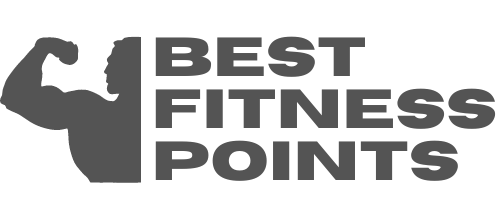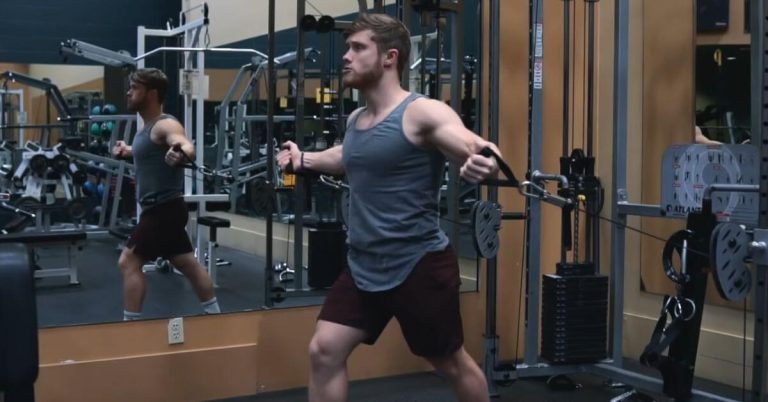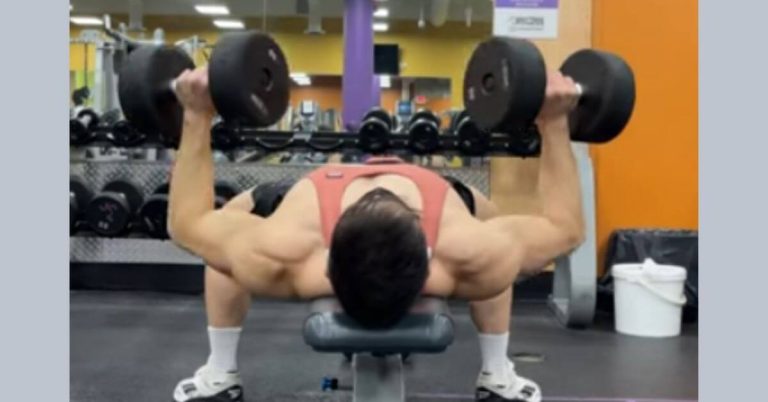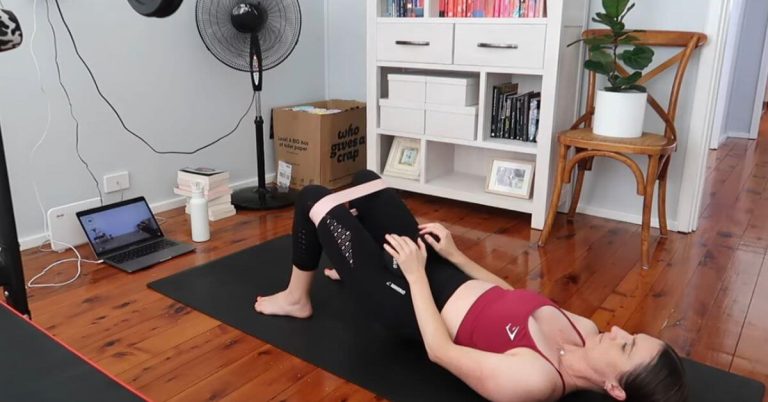Why Do Squats Make My Heart Race? Discover the Science Behind It
Last Updated on October 20, 2023 by Justin Harris
Why Do Squats Make My Heart Race: Squats make your heart race because the exercise activates multiple muscles simultaneously, increasing adrenaline levels and heart rate. This increase in heart rate is a normal response to the physical exertion and can lead to a higher frequency or intensity of heart palpitations.
As adrenaline levels decrease post-exercise, the palpitations should subside. Squatting is known to raise arterial blood pressure, cardiac output, and central blood volume in normal individuals. This circulatory effect is a natural response to the exercise. During physical activity, the heart beats faster to pump more blood throughout the body, resulting in a faster heart rate.
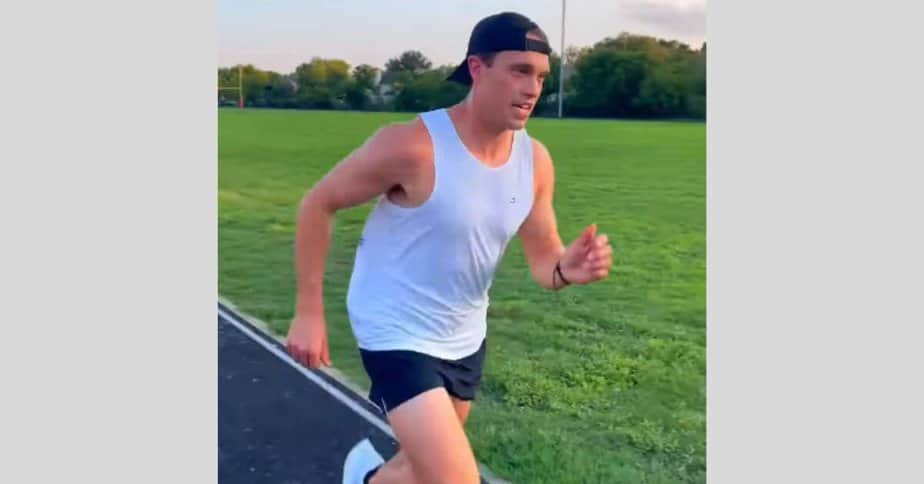
While it is normal to feel your heart pounding during exercise, individuals experiencing palpitations even at rest or during light activity should consult a healthcare professional.
The Connection Between Squats And Heart Rate
Squats are a popular exercise that can have a significant impact on heart health. When performing squats, several factors contribute to an increased heart rate. Firstly, the physical exertion involved in squatting causes the heart to pump more blood to the muscles, resulting in an elevated heart rate.
Additionally, squats require a strong core and lower body engagement, which can further increase heart rate as more muscles are activated. Moreover, the intra-abdominal pressure generated during squats puts additional strain on the cardiovascular system, leading to a higher heart rate.
It is normal for the heart rate to increase during exercise, including squats, as it adjusts to the demands of physical activity. However, if you experience any unusual symptoms or discomfort during squats, it is important to consult with a healthcare professional to rule out any underlying heart conditions.
Physiological Response During Squats
After exercise, the body’s adrenaline level remains high for a period of time while the heart rate decreases back to normal. Due to the higher adrenaline level in this time period, the palpitations can occur at an increased rate or frequency. As the adrenaline level decreases, the palpitations should decrease as well.
Squatting from the standing position increases arterial blood pressure, cardiac output, and “central blood volume” in normal subjects.
- During exercise, your heart typically beats faster so that more blood gets out to your body.
- It is normal to hear or feel your heart “pounding” as it beats faster when you exercise.
- During the squat lift, your brain activity, blood pressure temporarily goes up, and your body reacts to the intra-abdominal pressure impacting various parts including your heart and lungs.
- Heart rate will definitely spike near your max during very heavy compound lifts.
Muscle Activation And Heart Rate
|
When it comes to squats, many people wonder why their heart rate increases during this exercise. The main reason for this is muscle activation. Squats are a compound exercise that target multiple muscles, including the quadriceps, hamstrings, glutes, and core.During squats, these muscles are working hard to lift the weight, resulting in increased demand for oxygen and nutrients. In response, the heart pumps more blood to deliver these essentials to the muscles. This increased blood flow leads to an elevated heart rate. Additionally, squats require a good amount of effort and energy, causing the body to release adrenaline and other stress hormones. These hormones further contribute to an increased heart rate. In conclusion, squats not only activate and strengthen various muscles, but they also have a significant impact on the cardiovascular system by elevating heart rate and promoting increased blood flow. |
Breathing Techniques And Heart Rate
Proper breathing during squats plays a crucial role in regulating heart rate. When performing squats, it is important to focus on maintaining a consistent breathing pattern to ensure optimal oxygen supply to the muscles.
One of the main reasons squats can make your heart race is the increased demand for oxygen by the muscles during this compound exercise. By taking slow, deep breaths, you can help deliver oxygen-rich blood to the working muscles, reducing the strain on your heart.
In addition, proper breathing techniques can help stabilize your core and enhance your overall squat performance. As you inhale, brace your core and engage your diaphragm, creating a stable foundation for the movement. Exhale as you ascend from the squat, maintaining control and stability throughout the exercise.
By focusing on proper breathing and maintaining a consistent breathing pattern during squats, you can optimize your performance, reduce the strain on your heart, and minimize the risk of dizziness or lightheadedness.
Squats And Fitness Level
When it comes to squats, there is a direct relationship between fitness levels and heart rate. Trained athletes and beginners experience different effects on their heart rate during squats.
Trained athletes have a higher level of cardiovascular fitness, so their heart rate may not increase as much during squats compared to beginners. Their heart is more efficient at pumping blood, resulting in a lower increase in heart rate.
On the other hand, beginners have lower cardiovascular fitness, so their heart rate tends to rise significantly during squats. This is because their heart needs to work harder to pump blood and provide oxygen to the muscles.
It is important to note that these effects may vary based on individual fitness levels and other factors. It is always recommended to consult with a fitness professional to ensure proper form and safety during squats.
Tips To Manage Heart Rate During Squats
After exercise, the body’s adrenaline level remains high for a period of time while the heart rate decreases back to normal. Due to the higher adrenaline level in this time period, the palpitations can occur at an increased rate or frequency.
As the adrenaline level decreases, the palpitations should decrease as well. Squatting from the standing position increases arterial blood pressure, cardiac output, and “central blood volume” in normal subjects. During exercise, your heart typically beats faster so that more blood gets out to your body.
Your heart can also increase its stroke volume by pumping more forcefully or increasing the amount of blood that fills the left ventricle before it pumps. It is normal to hear or feel your heart “pounding” as it beats faster when you exercise. But if you have palpitations, you might feel like your heart is pounding while you are just sitting still or moving slowly.
During the squat lift, your brain activity and blood pressure temporarily go up. Your body reacts to the intra-abdominal pressure impacting various parts including your core, legs, hips, lower back, posterior chain, shoulders, hamstrings, grip, heart, and lungs.
Conclusion
Squats can cause your heart to race due to the activation of multiple muscles at the same time. This leads to an increase in adrenaline level, resulting in palpitations. However, as the adrenaline level decreases after exercise, the palpitations should also decrease.
It is normal for your heart to beat faster during exercise, but if you experience palpitations at rest or with minimal movement, it is advisable to consult a healthcare professional. Remember to listen to your body and exercise safely.
Read Also,
- Do Stationary Bikes Work?
- Are Stationary Bikes Good Cardio?
- Why Does Creatine Taste So Bad?
- Why Does Creatine Make Me Nauseous
- Why Does Creatine Powder Jump?
- Why Do Weights Feel Heavier Some Days
- The Incredible Benefits of Stationary Bikes
- Are Stationary Bikes Good Exercise?
- Why Do Weights Feel Heavier at Different Gyms?
- Why Do My Shoulders Pop When I Do Lateral Raises?
